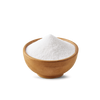
Should you Pursue “Healthy Hedonism”
A few weeks ago, I wrote an article on a workout trend called “75 Hard.”
If you’d like to read the article it’s here.
In summary, 75 Hard is a 75-day, rather intense health challenge that encourages participants to work out, stick to a regimented diet, read at least 10 pages of nonfiction daily, and more.
Myriads of people who have done 75 Hard have come away changed.
The mental and physical rigor of the program can do that to a person.
And yet, there are numerous others who have done 75 Hard and come out worse for wear.
Knowing that 75 Hard isn’t something everyone should do is exactly why I didn’t endorse it in my article.
And I still don’t.
However, some readers were concerned about the article. Which is good, I welcome discussion and contrary opinions. I appreciate all input.
One reader and patient, a Behavioral Scientist, wrote to me and made some excellent points about why 75 Hard isn’t ideal. Today, I’ll take that response and explore “healthy hedonism” to see if my readers may also like to pursue it.
At the end of the day, if people read my articles and try one thing or another, as long as they’re taking steps to improve their health, then I’m happy.
The Dangers of 75 Hard And What Healthy Hedonism Offers
While 75 Hard has worked for many people, it has also been proven to be negative for some.
A reader sent this response to the article, pointing this out.
91 Fun is much better and is actually empirically validated. There is a significant risk of moral injury with 75 Hard, which is often underreported because of survivorship bias (which unfortunately is the case here, where we're celebrating Frieslla but not mentioning the people whose well-being was harmed because they weren't in a place [emotionally, mentally, physically] where this should have been attempted).
Essentially, that means that being unable to complete 75 Hard made it so people became discouraged and even may have gone into a funk about their failure.
The author of the note suggested that there are other ways to change health and part of that is locked up in what is referred to as healthy hedonism.
At first blush, I don’t particularly like the phrase healthy hedonism because in general, I have a negative view of hedonism.
But as we unpack the term, I can somewhat get behind it (the term, that is). The actual definition is much better.
According to ExBerry.com (a company that makes safe, plant-based food dyes).
“Healthy Hedonism combines playful indulgence with personal wellbeing, alongside the wellbeing of the planet – a theme that resonates with optimistic, motivated Generation Z. From seductive healthy snacks to kaleidoscopic Tik Tok food trends, Healthy Hedonism showcases a lifestyle that is playful, considered and nourishing.”
And the way Mike Rucker, Ph.D. defines it is as follows:
“Engaging in something you at least derive some pleasure from—sometimes referred to as healthy hedonism—appears to be a stronger predictor of sustained wellness behavior when compared to most other factors.”
Rucker wrote an article (and even a book) on why programs like 75 Hard aren’t as good as popular social media posts make it out to be.
Essentially Rucker and others who are advocating for "healthy hedonism” are saying that it’s better to find something you enjoy doing, and commit to that rather than trying to subject yourself to a grueling behavior modification course.
Which I can get 100% on board with.
Sometimes people need to make a drastic change in their lives to remedy serious underlying issues. Some people need strict guidelines and tough challenges to encourage them to make any change at all. That’s where something like 75 Hard comes into play.
And other times, it’s more important and longer lasting to enjoy the journey, which is what healthy hedonism is for.
Since 75 Hard is mainly about exercise, I’ll let Rucker speak to how applying healthy hedonism may help others more than 75 Hard would.
"It Starts With Finding What Works for You
When it comes to exercise, one size does not fit all. The good news is that the wellness landscape has significantly evolved over the past few decades to offer a diverse selection of approaches to fitness and movement, which means there is a high likelihood that there is a type of exercise or wellness practice that fits your preferences and lifestyle.
As someone whose livelihood depends on helping health club operators design the optimal customer experience, it is not surprising I caught some flack when I wrote in my book The Fun Habit, ‘If you hate the gym, don’t go! It’s not for everybody. Instead, pick a physical activity with no commute, like bodyweight exercises in your own home or a nature hike in a nearby park.’ But the assertion wasn’t meant to cause controversy. On the contrary, it was to highlight the fact that when people don’t find fun in what they’re doing, they tend to fail.
When we start our health journey by honoring our unique preferences, we are able to redefine wellness as a source of joy. When we stack the deck in our favor by scheduling activities we are drawn to that are also helpful in supporting a healthy lifestyle, we don’t need to rely on willpower to push through and keep going when it comes to fitness. Instead, we turn exercise into something “we get to do” rather than something “we have to do.”
This is a great philosophy, one which I can get behind 100%.as much as I can with something like what is embodied in 75 Hard.
At the end of the day, my job as a physician is more about asking questions that help us arrive at the right answer together for individualized health.
Healthy hedonism could be the tool to help jump-start many people’s health journeys in the right direction just as much as the shock of 75 Hard could be for others.
I have a feeling more people would respond better to healthy hedonism than 75 Hard. I strive to offer solutions I know could benefit people and are fundamentally healthy and let them choose what speaks to them.
I’m glad I got a chance to talk about the alternative to 75 Hard and I hope this information is as useful to you as it was to me.



